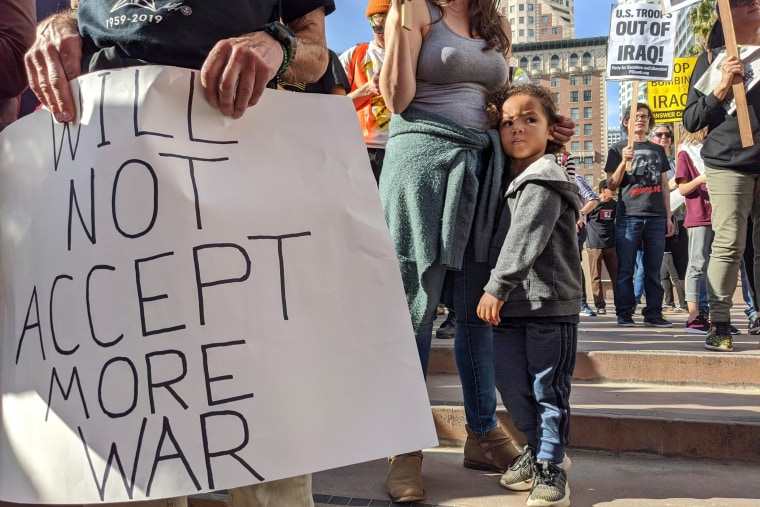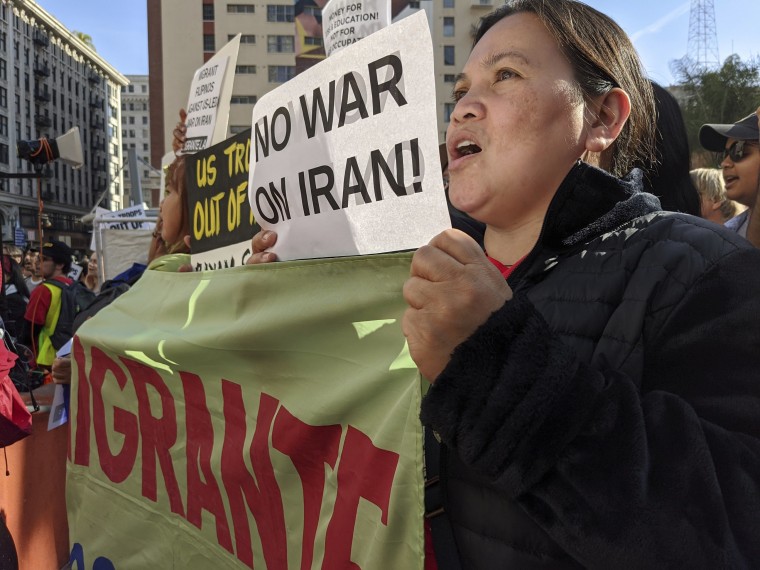The killing of Gen. Qassem Soleimani stoked fears Sunday that people of Iranian descent in the United States would come under heightened surveillance and led to reports that Iranian Americans were being detained at the U.S.-Canada border, which Customs and Border Protection denied.
The Washington state chapter of the Council on American-Islamic Relations, or CAIR, claimed that dozens of Iranians and Iranian Americans had been detained and questioned about their political views and allegiances as they returned to the United States from a pop concert in Canada on Saturday night.
But a spokesman for Customs and Border Protection, or CBP, called the report "false."
"Based on the current threat environment, CBP is operating with an enhanced posture" at its border crossings to "safeguard our national security and protect the America[n] people while simultaneously protecting the civil rights and liberties of everyone," the agency said in a statement.
CBP said wait times at the border crossing in Blaine, Washington, where the concertgoers were alleged to have been detained, increased to four hours for some people because of reduced staffing and increased traffic.
Download the NBC News app for breaking news
Nevertheless, responses to Soleimani's killing from President Donald Trump and the Los Angeles Police Department have triggered fear and anxiety about what could come next, said Niaz Kasravi, founder and director of the Avalan Institute, an advocacy group based in Los Angeles.
"We seem to always be at the brink of conflict between our two countries in one way or another," said Kasravi, who was born in Tehran and moved to the United States in 1984, when she was 9. "For a lot of us, it is the most serious we've seen it."
Rep. Pramila Jayapal, D-Wash., said Sunday that she was "deeply disturbed" by CAIR's report and that her office was working on the issue. Rep. Barbara Lee, D-Calif., offered her office's phone number for people to report cases of detention.
Azadeh Shahshahani, legal and advocacy director for Project South, a human rights group based in Atlanta, tweeted Saturday that surveillance of Iranian Americans and others was sure to escalate "in light of US aggression against Iran."
She said in an interview that since the terrorist attacks of Sept. 11, 2001, she has seen the FBI question people who migrated from other countries when the United States was involved in conflicts with those countries. Project South looked into cases of people of Afghan and Pakistani descent who had been questioned by the agency shortly before the 2016 election, she said.
"Especially now in the current atmosphere ... it's really important for Iranian Americans and Muslim Americans to be aware that they have rights if targeted by the FBI," she said. "One of them is the right to counsel."

Shahshahani said she was not aware of anyone being contacted by the FBI since the Iran tensions ratcheted up. An FBI spokeswoman declined to comment on Sunday night.
In Los Angeles, which has more residents of Iranian ancestry that any other U.S. city, an Assembly member of Iranian descent, Adrin Nazarian, said people were unlikely to take to the streets even if they were "happy there's one less brutal individual in the world."
Nazarian said many Los Angeles transplants fled Iran during the 1979 revolution because they were members of minority religious groups and likely faced persecution under the new regime. But they still have relatives in Iran, he added.
"A lot of times, you'll see some folks not wanting to be too vocal outside Iran out of fear for consequences for their loved ones," Nazarian said.

